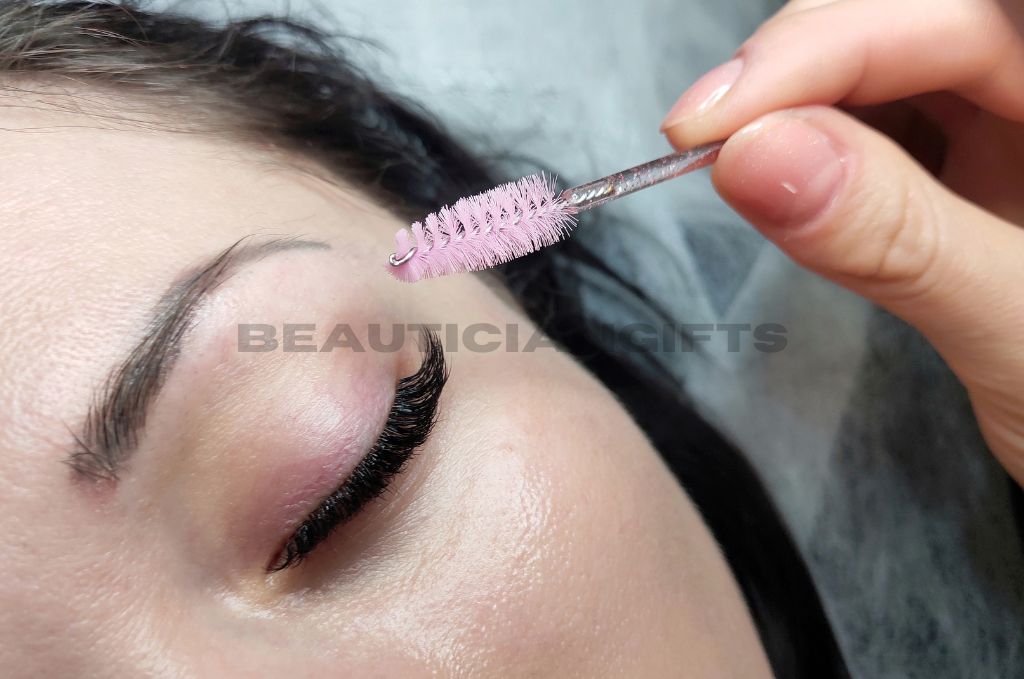Lash serums are best known for enhancing eyelash growth and volume. However, lash serums have a brief life span and may expire unless properly maintained or used within a specific timeframe. For example, lash serums containing natural ingredients may have a shorter shelf life than synthetic ones. Similarly, exposure to heat, light, and air can also expedite the disintegration of a lash serum. You should understand these factors to ensure the lash serum is used before it expires and to avoid any adverse effects on the eyes or skin. In this detailed article, we will talk about the factors affecting lash serum expiration, so stay tuned.
Factors affecting lash serum expiration

Lash serums are cosmetic treatments that assist in lengthening, volumizing, and strengthening your eyelashes. Lash serums have a shelf life and will expire after a specified term. The expiry of lash serums is affected by several variables, some of which are described below.
- High temperatures might cause lash serum chemicals to degrade and lose efficacy. You should keep your lash serum in a dry area at an optimum temperature out of direct sunlight.
- Moisture may also impact the stability of lash serums. Humidity or water exposure might cause the formula to split or decay, decreasing its shelf life.
- Your lash serum’s packaging might also affect its shelf life. Because air, light, and heat may damage the active chemicals in a product, look for sealed and opaque packaging that can help shield it.
- The shelf life of lash serum may also be affected by the quality and stability of the ingredients used. For example, plant extracts are more susceptible to deterioration than synthetic compounds. Furthermore, certain substances may be more prone to oxidation, impairing their efficiency and lowering the product’s shelf life.
- Lash serum contamination might significantly shorten its shelf life. To apply the serum to your lashes, always use a clean brush and avoid touching the tip of the applicator to any surface that might introduce germs or other pollutants.
Shelf life of lash serums
The shelf life of lash serums varies from brand to brand and is influenced by multiple variables.
Most lash serums have a shelf life of 6 to 12 months from the manufacturing date, so verify the expiration date before using them. Depending on the brand and use, the serum might last for 3 to 6 months once opened.
You should preserve lash serums carefully to increase their shelf life. They must be stored in a dry, cool location away from sunlight and heat. Avoid exposing them to dampness since this might induce contamination and reduce the product’s efficacy.
Ingredients in Lash Serum and Their Effect on Expiration
Lash serums include a range of components, each of which has a distinct influence on the serum’s expiry date.
Prostaglandins, peptides, and biotin are the key chemical components in lash serums. These substances promote lash development by increasing blood flow, strengthening hair follicles, and encouraging cell regeneration. However, they may deteriorate with time, resulting in a decline in performance.
Preservatives, emollients, and humectants are the other frequent constituents in lash serums. Preservatives like phenoxyethanol and sodium benzoate keep microorganisms at bay, while emollients like glycerin and panthenol soften and condition the lashes. Humectants such as Hyaluronic Acid and Glycerin aid in moisture retention.
A serum with a greater concentration of preservatives may persist longer than one with fewer preservatives. Furthermore, exposure to sunshine, heat, and air may cause the components to break down, lowering the serum’s potency and shortening its shelf life.
To summarize, the chemicals in lash serums significantly influence their expiry date. To ensure optimal performance, keep the serum appropriately, minimize exposure to heat and light, and replace it after the specified duration.
Frequently Asked Questions (FAQs)
How Does Exposure To Air Affect The Expiration Of Lash Serum?
Air exposure can cause the lash serum’s active ingredients to oxidize, reducing its effectiveness and potency over time. It can also cause the serum to thicken or become discolored, indicating it has gone bad.
Can Heat Affect The Expiration Of Lash Serum?
Yes, heat can accelerate the breakdown of the ingredients in your lash serum, leading to a shorter shelf life. Try storing your serum in a dry and shady area.
How Does Contamination Affect The Expiration Of Lash Serum?
Contamination can occur when bacteria, dirt, or other foreign substances enter your lash serum bottle. It can cause the serum to spoil and become unsafe to use, even if it hasn’t reached its expiration date yet. Always use clean hands when applying lash serum, and avoid touching the applicator tip to any surfaces to prevent contamination.
Does The Type Of Packaging Affect The Expiration Of Lash Serum?
Yes, the type of packaging can also affect the expiration of lash serum. Products that come in transparent or translucent bottles are more susceptible to damage from light, while products that come in jars or tubs can be more easily contaminated if you don’t store them properly. Look for lash serums that come in opaque, airtight packaging.
The bottom line
I hope you got the idea of the factors affecting the lash serum expiration. To summarize, careful storage, adequate packaging, high-quality ingredients, and contamination prevention may all assist in increasing the shelf life of your lash serum. Always follow the manufacturer’s suggested storage and use directions while using the lash serum. Carefully dispose of the product after its expiration date.
You should follow the recommendations on the product label, check the expiration date, and carefully store lash serums to preserve their effectiveness and lifespan.